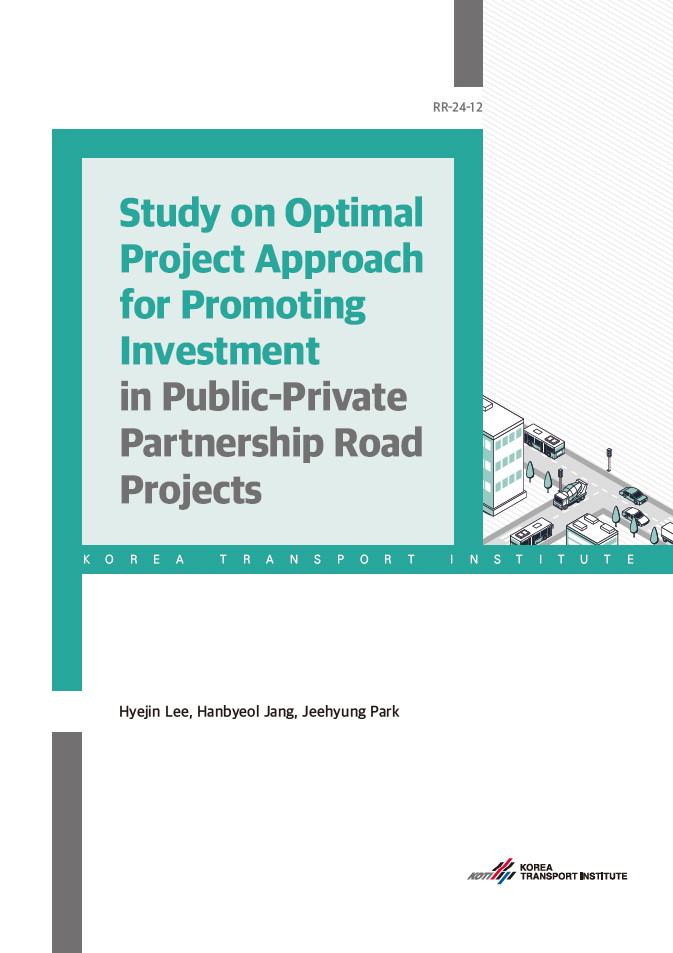Basic Report

RESEARCH
KOTI - Korea Transport institute
(RR-24-12) Study on Optimal Project Approach for Promoting Investment in Public-Private Partnership Road Projects
- Date
July 01 2025
- Authors
Hyejin Lee, Hanbyeol Jang, Jeehyung Park
- Page(s)
10 page(s)

1. Introduction
A. Motivation and objective
Since 2015, the Korean government has promoted private investment in road infrastructure by introducing various delivery methods for public-private partnership (PPP) projects, as shown in Table 1. These efforts aim to distribute project risks between the public and private sectors based on the characteristics of each road project. However, despite continued institutional efforts, the absence of a decision-making tool to evaluate the risk-sharing structure of each delivery method has hindered the adoption of various approaches.
To address these issues, this study proposes the use of Robust Decision Making (RDM) to evaluate the delivery methods of PPP road projects. The proposed model offers a framework to assess the vulnerability and robustness of road projects in the face of future risks using project return rates as a key reference indicator.
B. Methodology
This research covers a total of 34 PPP road projects—including national expressways and local government roads—as of the end of 2023. This research defines the correlation between the rates of return and risk groups of projects by robust regression analysis. RDM is incorporated for a decision-making framework.
A. Motivation and objective
Since 2015, the Korean government has promoted private investment in road infrastructure by introducing various delivery methods for public-private partnership (PPP) projects, as shown in Table 1. These efforts aim to distribute project risks between the public and private sectors based on the characteristics of each road project. However, despite continued institutional efforts, the absence of a decision-making tool to evaluate the risk-sharing structure of each delivery method has hindered the adoption of various approaches.
To address these issues, this study proposes the use of Robust Decision Making (RDM) to evaluate the delivery methods of PPP road projects. The proposed model offers a framework to assess the vulnerability and robustness of road projects in the face of future risks using project return rates as a key reference indicator.
B. Methodology
This research covers a total of 34 PPP road projects—including national expressways and local government roads—as of the end of 2023. This research defines the correlation between the rates of return and risk groups of projects by robust regression analysis. RDM is incorporated for a decision-making framework.
[ Contents ]
1. Introduction
1-A. Motivation and objective
1-B. Methodology
2. Main Contents of Research
2-A. Key Challenges for determining the delivery methods
2-B. Applicability of Robust Decision Making (RDM)
2-C. Model Development
2-D. Application
3.Conclusion
1. Introduction
1-A. Motivation and objective
1-B. Methodology
2. Main Contents of Research
2-A. Key Challenges for determining the delivery methods
2-B. Applicability of Robust Decision Making (RDM)
2-C. Model Development
2-D. Application
3.Conclusion